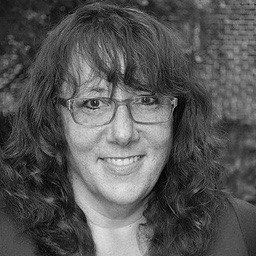In the face of widespread popular Jewish acceptance of intermarriage and a sense that the Jewish community’s leaders have given up any effort to oppose it, a group of 25 Jewish rabbis, intellectuals, lay leaders and communal affairs professionals is galvanizing to fight for change.
After an initial, closed-to-the-press meeting Feb. 20 at the New York offices of the American Jewish Committee (AJC), the nascent group is now asking leaders of the Jewish community to state loud support for what has been the Jewish norm of Jews marrying Jews.
This week, group members issued a statement saying they intend "to work together to help restore the ideals of inmarriage and to promote its importance to the future of the Jewish community and to the preservation of Judaism and the Jewish people. We believe that there exists a leadership responsibility to shape the communal climate and set norms."
Steven Bayme, national director of contemporary Jewish life for the AJC, who organized the meeting, called the purpose "to change the culture" regarding intermarriage in American Jewish life.
The coalition, as yet unnamed, includes three Reform rabbis and two Conservative rabbis who work in congregations, along with Modern Orthodox sociologists, the head of an influential foundation, and author Elliott Abrams. Officials say the group has not yet determined how it will programmatically address its mission.
Sociologist Egon Mayer, founding director of the Jewish Outreach Institute, which promotes outreach to unaffiliated and intermarried families, said, "They’re going to make speeches to people who in every other aspect are integrated into American life and expect those people to listen?
"It doesn’t cost anything to pontificate, but the American Jewish Committee could use its collective intelligence in better ways than this,"Mayer said.
In response to this dismissal, Abrams said, "It almost amounts to censorship, if he’s saying that people should shut up rather than try to change things." He continued, "Defeatism isn’t a useful tactic. The rate of intermarriage isn’t fixed and can be affected."
"I’m afraid that we’re reaching a place where intermarriage can’t even be discussed," he said. "We’ve already reached that in some synagogues, where people get angry at the rabbi, whose contract might not be renewed" if he or she discusses the subject.
According to Bayme and company, however, although intermarriage may be inevitable, the Jewish community does not have to accept it as normative. "We’re not deluding ourselves into thinking that intermarriage will go away, but we’re not powerless when it comes to affecting the climate in which the Jewish community perceives it," Bayme said.
Bayme added that he organized the meeting after being shocked by the findings of a survey sponsored by his own organization that revealed that a majority of American Jews regard marriage between Jews and gentiles as neutral, even positive, rather than as something negative — a radical break from the traditional Jewish point of view.
A majority of respondents to the survey — 56 percent — said they would not be pained if their child married a gentile, and 50 percent said they view Jewish opposition to intermarriage as racist. Among respondents, 57 percent even said rabbis should co-officiate with Christian clergy at interfaith weddings.
The study also found that support for the conversion of the non-Jewish spouse to Judaism has collapsed. Only one-quarter of American Jews agree that the best response to mixed marriage is to encourage the gentile partner’s conversion to Judaism.
One goal of the new coalition is to make conversion a positive aim in interfaith marriages.
The complicated and emotionally charged issues of interfaith families are felt particularly acutely in Reform, Reconstructionist and Conservative synagogues, where intermarried congregants and their children feel excluded if the subject of interfaith marriage is even broached, rabbis say.
"We call it ‘the I word,’" Rabbi Avis Miller said half-jokingly. Miller, who spoke at the AJC meeting, is rabbi of Conservative congregation Adas Israel in Washington, D.C.
She said it is hard to maintain boundaries by defining legitimate roles in synagogues for non-Jewish spouses without having them perceived as barriers. And, Rabbi Miller confessed, "We do lose people in the act of defining who we are."
Reform rabbis face particularly acute challenges because, unlike their Conservative colleagues, they can choose to officiate at mixed marriages. Their willingness to do so has been a litmus test for many Reform rabbis being interviewed for jobs at congregations.
Rabbi Jeffrey Salkin of The Community Synagogue in Port Washington, N.Y., says he does not officiate at intermarriages, but the pressure on his colleagues to do so "can be very intense." One of three Reform pulpit rabbis to participate in the new coalition, he said he hopes that "we will come up with a way of communicating to the Jewish public that inmarriage is the way to go, that we can teach our young people to focus their romantic choices on Jewish partners."
Rabbi Salkin said he is involved with the group because he wants the Jewish community to better articulate the message that "there’s only one reason for Jews to marry Jews: because we want Judaism to continue…. There has to be a ‘what for’ in the message that we give people to marry Jews," he added. "The ‘what for’ is that Judaism is worth struggling for."























 More news and opinions than at a Shabbat dinner, right in your inbox.
More news and opinions than at a Shabbat dinner, right in your inbox.